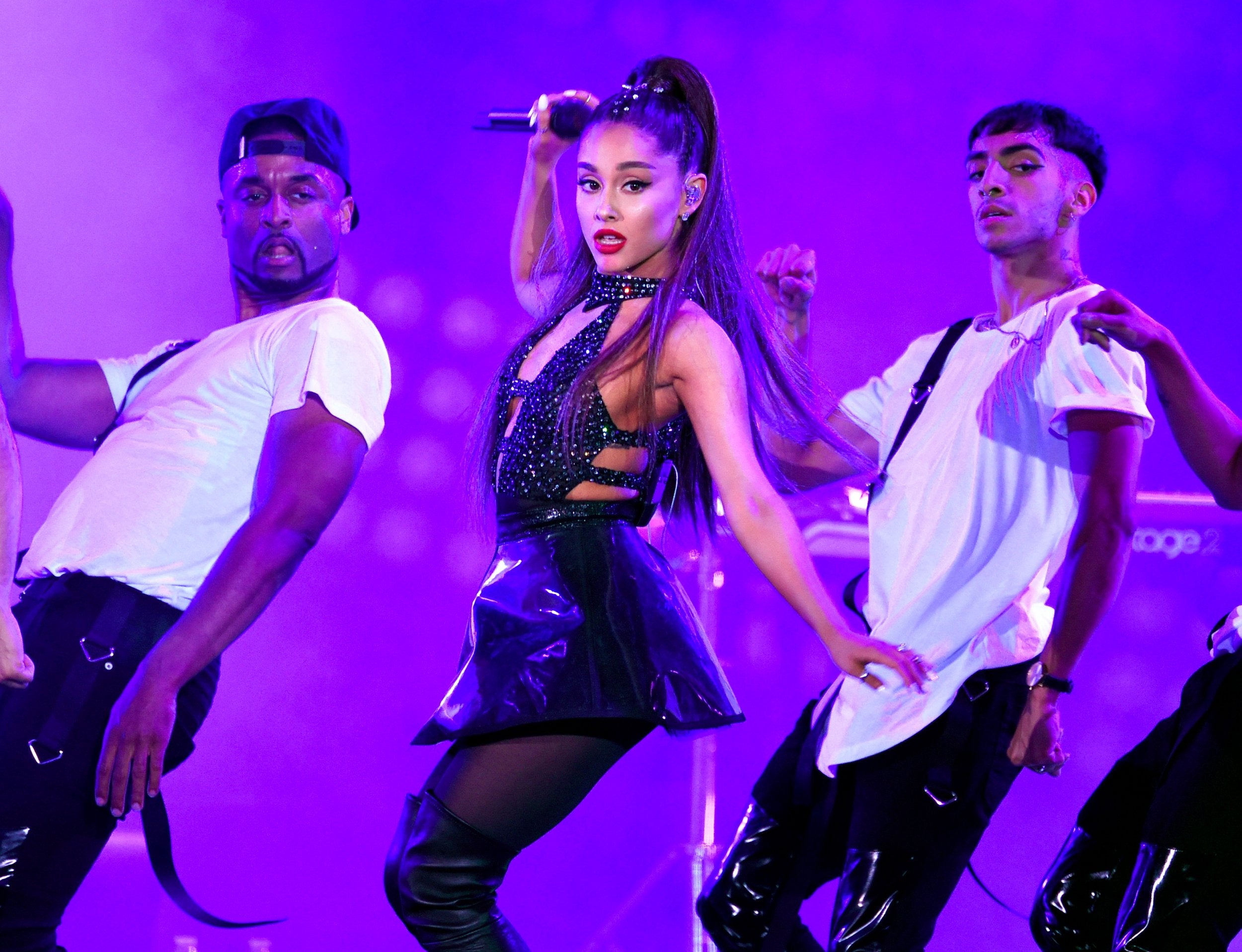Even for young, socially aware readers, there is such a thing as too woke
When platforms try too hard to cater to what they think their audiences want, they’ll inevitably overstep the invisible line


Your support helps us to tell the story
From reproductive rights to climate change to Big Tech, The Independent is on the ground when the story is developing. Whether it's investigating the financials of Elon Musk's pro-Trump PAC or producing our latest documentary, 'The A Word', which shines a light on the American women fighting for reproductive rights, we know how important it is to parse out the facts from the messaging.
At such a critical moment in US history, we need reporters on the ground. Your donation allows us to keep sending journalists to speak to both sides of the story.
The Independent is trusted by Americans across the entire political spectrum. And unlike many other quality news outlets, we choose not to lock Americans out of our reporting and analysis with paywalls. We believe quality journalism should be available to everyone, paid for by those who can afford it.
Your support makes all the difference.Too woke, or not too woke, that is the question. Shakespeare might find more profound issues to ponder if he were alive today, but that’s hardly going to stop me.
If you’re looking at your screen in a confused manner, “woke” is an adjective, a verb and an outlook. The political term refers to a perceived awareness of social justice issues, particularly those affecting minority groups. The expression “stay woke” originated in African-American culture and its widespread use since 2014 is a result of the Black Lives Matter movement. A typical example of “wokeness” is an acknowledgement or understanding of intersectionality, a concept that describes interlocking systems of oppression that impact marginalised groups, such as women, ethnic and sexual minorities and working class people.
At first glance, “woke” appears to be the cool younger cousin of “political correctness”, a concept that has been so intensely weaponised by right-wingers and abstracted from reality that it now feels pretty meaningless. Both terms are changeable in the sense that what individual people and society consider to be woke or PC depends on their beliefs at any given time.
A recent example is the debate around “Baby, It’s Cold Outside”, which was once considered a thoroughly unremarkable, pleasant Christmas tune from the 1940s. A US radio station pulled the song this month after many people perceived the line “Say what’s in this drink?” as making light of date rape and generally “pushing the line of consent”.
Wokeness often equates to awareness, and can bring positive change. For example, a few years ago, referring to a trans person by their preferred pronouns might have seemed woke or PC, but most people now would view that as a common courtesy. Wokeness is also dependent on context and perception. Prince Harry and Meghan Markle are often described as “woke Royals”, but outside that specific, conservative context they might not seem very woke at all.
Wokeness faces the same pitfall as political correctness in that it elevates treating marginalised people with courtesy to a special, politicised status, rather than merely the norm we should expect from everyone. The younger generations, in their early twenties or late teens, are the first to truly grasp the complexities of diversity, incorporating wokeness into their mainstream lexicon and consciousness. For them, wokeness is just normality.
With these issues at the top of the youth agenda, wokeness has become a valuable currency for brands and platforms to trade on, particularly those who cater to minority groups. Teen Vogue’s political revamp, which ushered in a new focus on race, queerness and reproductive health issues, breathed new life into the publication. This led to the creation of them, an LGBT-focused digital platform from Condé Nast edited by trans writer and photographer Meredith Talusan. Gay dating app Grindr also launched INTO, a “digital magazine for the modern queer world”.
INTO got “into” hot water this week when it published an opinion piece that suggested the Mean Girls-inspired video for Ariana Grande’s new single, “thank u, next”, was “surprisingly anti-queer”. Grande has been a vocal supporter of the LGBT+ community, even penning open letters and speaking publicly about her love for her LGBT+ fans. The piece accused Grande of including “transmisogyny, heterosexual pride, and blackface” in the video, with each justification more outlandish and nonsensical than the next.
Things quickly got ugly, with fans and famous friends of Grande criticising the article on Twitter. INTO released a statement saying that they had removed the author’s name due to “death threats”. The following day, the site’s editor Zach Stafford published a statement saying that INTO’s editorial team had “messed up” and that the piece “should never have been published” as it did not meet the publication’s editorial guidelines.
INTO found out the hard way that with great wokeness comes great responsibility. When “takes” are published that have no basis in fact or reality, it risks invalidating the worthy, fact-based progressivism that their brand represents.
Though they are by no means alone in taking wokeness too far in the eyes of their readers, even within LGBT+ media. An article published by them earlier this year, which insinuated that Princess Diana’s life was queer “in many ways”, was similarly ridiculed on social media. Phillip Picardi, them’s former digital content officer, jokingly tweeted to say he now “rebukes it”. Gay magazine Attitude published an article earlier this year which suggested that young queer people “shouldn’t be obliged” to care about LGBT+ history. The global reaction piece, which claimed that homophobia was “like, SO 2008”, was so ferocious that its writer quit Twitter and was still receiving death threats to his private Instagram weeks later.
The reaction to these pieces proves that, even for young, socially aware readers, there is such a thing as too woke. Sometimes, when platforms try too hard to cater to what they think their audiences want, they’ll inevitably overstep the invisible line.
Though it’s not just publishing brands that have this issue. This week animal rights organisation Peta took things too far by saying that we must all eliminate “speciesism” or “anti-animal language” from our vocabulary. The group even compared phrases like “killing two birds with one stone” to racist and homophobic language. Even the most ardent vegans mocked this ridiculous claim. Sadly, interventions like Peta’s undermine the valid factual arguments for a reduction in meat and dairy consumption.
That said, hitting the “woke sweet spot” can be highly advantageous. After food retailer Iceland’s environmental Christmas advert was “banned” this year, it received widespread support. Nike’s recent advert featuring Colin Kaepernick, the American football star who knelt during the national anthem, succeeded in infuriating right-wingers while being described as “bold” and “brave” by others. As did Lush’s controversial “spy cops” campaign, which was eventually dropped, but started a wider conversation and won support from MPs including Caroline Lucas and shadow chancellor John McDonnell.
Ultimately, the “marketplace of ideas” that these brands exist in is just that: a marketplace. Having a personality, complete with political and social beliefs, can be commercially advantageous, making wokeness a valuable currency used to secure the desired retweets, page views and revenue that brands need to thrive.
But just as those on the opposite side of the spectrum, from publications to public personas, often trade in outrage, fanning the flames of prejudice while divorcing themselves from fact, platforms and brands that trade on wokeness should be careful not to do the same. Because when taken too far and separated from logic, wokeness not only becomes meaningless, but is also detrimental to the very causes it claims to defend.
Join our commenting forum
Join thought-provoking conversations, follow other Independent readers and see their replies
Comments